Finding Time to Study
This is an English article, there is also a Dutch version.
So, you’ve decided to start studying? Maybe you want to earn your Bachelor or Master’s degree, or perhaps you’re aiming for that highly technical certificate. It’s great that you’re taking this step, but once you begin, you’ll quickly need to answer the question of where you’ll find the time.
Time is our most valuable, non-renewable resource. Studying requires time – and not just a little – so you naturally want to use it well. Most programs expect you to invest between 12 and 24 hours per week to keep up, and that’s quite a bit! If you’re not currently studying, try thinking about which days and times you could free up that time. Will you eat out less or exercise less? Get up early on weekends or stay up late?
Most students run into this problem when they start studying; I’ve seen it all too often. You start your studies with full confidence, only to realize you haven’t considered how it fits into your life and what you need to sacrifice to make it work. Many students try to do everything at once, with predictable results. Thankfully, there is a strategy you can apply. I used this strategy during my part-time Bachelor and Master’s studies, and it worked perfectly for me.
The core of the strategy is using your calendar. To manage your time effectively, you need to know exactly when you’ll do what. This sounds simple, but most people only note important things in their calendar, like dentist appointments or Aunt Loes’s birthday.
You do a lot in a day. Personally, I have a 40-hour workweek, go to the gym, spend time with my family, and much more. If I didn’t plan these activities, I’d quickly lose track. Without an overview, it becomes difficult to study effectively because suddenly Aunt Loes will show up at the door.
The strategy includes the following steps:
- Use a calendar that you can access anywhere.
- Block out your work hours and stick to them.
- Also block time for your family and friends.
- Schedule study sessions.
It doesn’t really matter which calendar you use, as long as it’s accessible to you. In my examples, I’ll use the Proton Calendar because it’s secure and based in the EU. This way, you don’t have to worry about big tech companies snooping into your schedule.
An empty calendar looks like this:
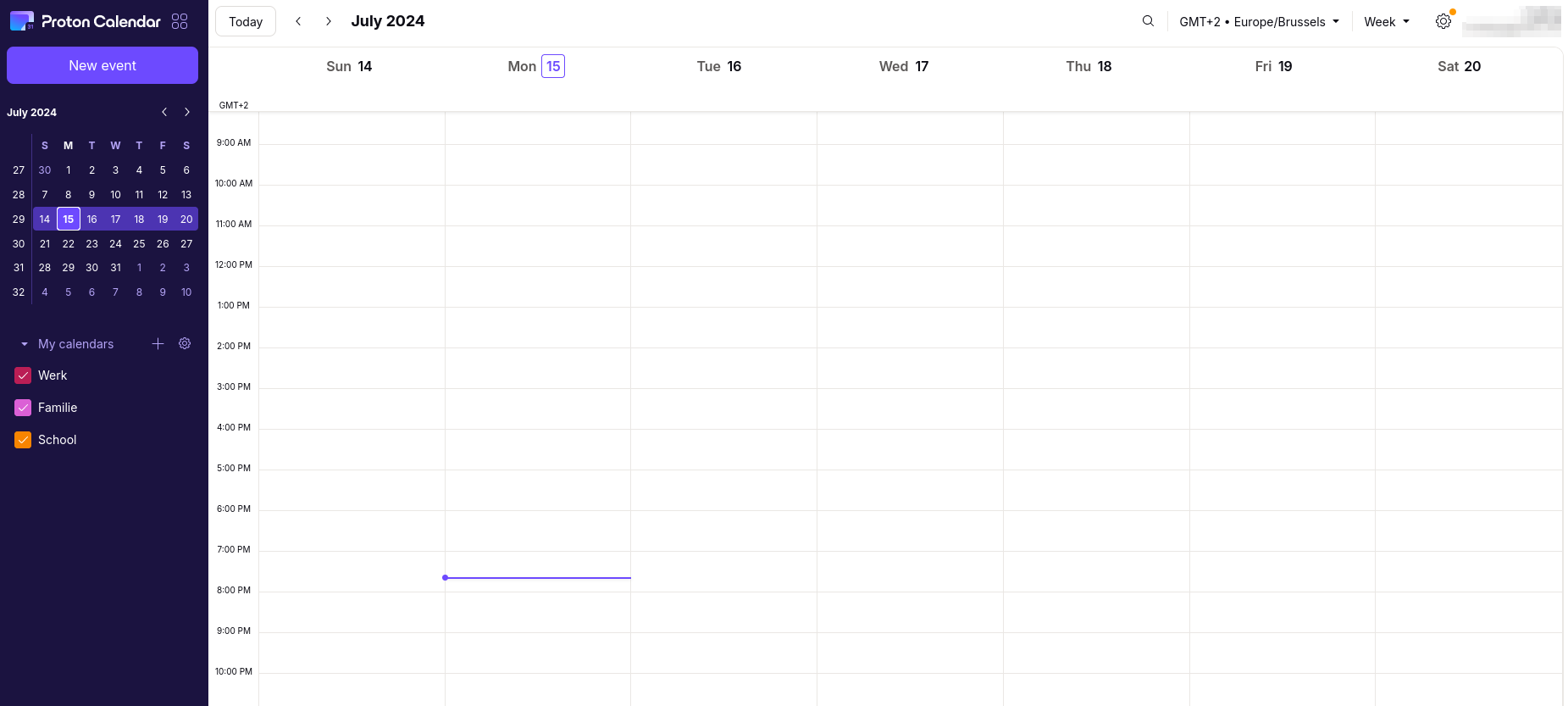
Figure 1: An empty calendar, that’s quite calm!
As you can see, I’ve given each area of my life its own color. This is super handy because you can immediately see which appointment belongs to which area.
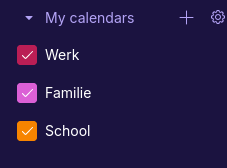
Figure 2: Each calendar its own color, though I’m not great at choosing colors.
As the first step, let’s plan the workdays. I already have all my work appointments in my calendar, but I also block my work time with a calendar event. This way, I always know when I am or am not available. If you also have to travel to and from work, plan that time as well. I do this on Wednesdays and Fridays.
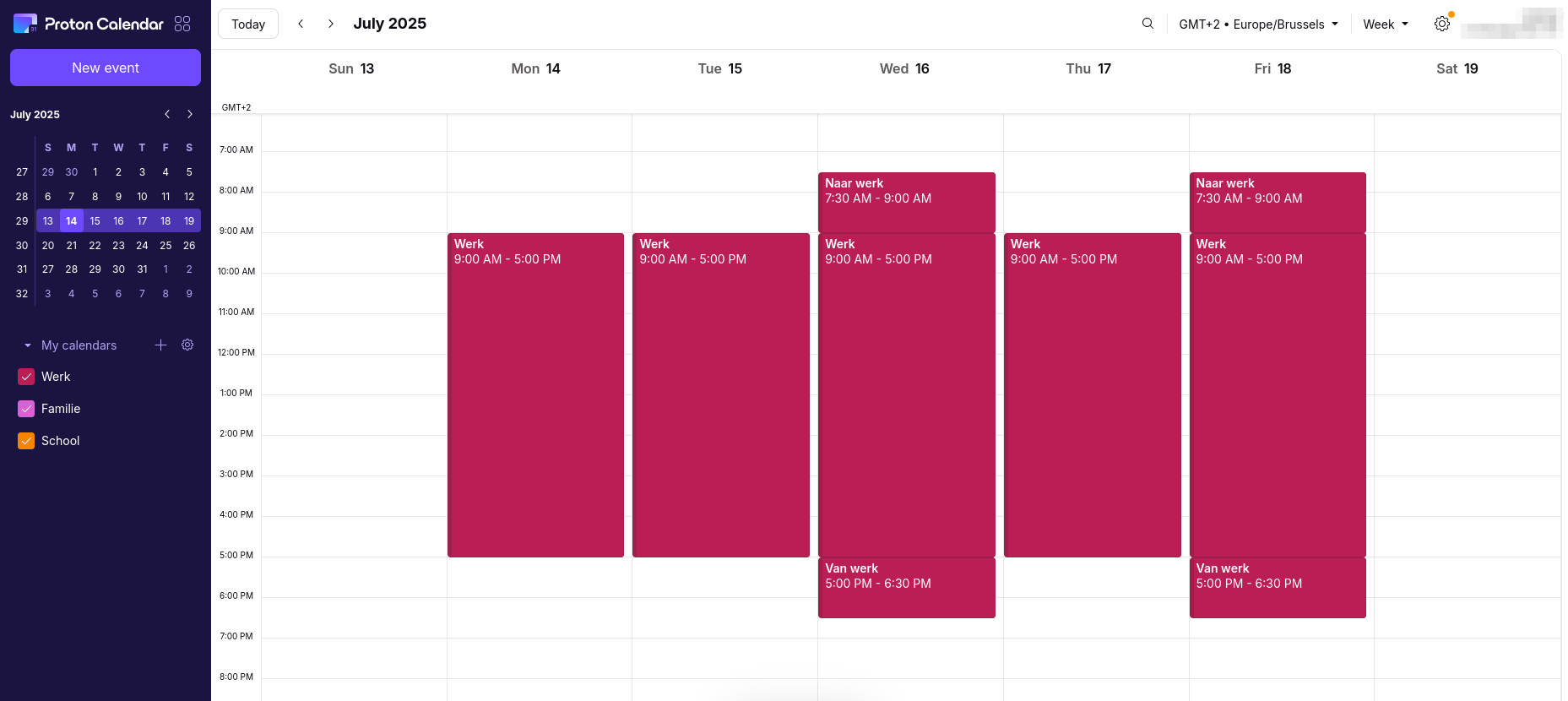
Figure 3: Step 1, plan your workdays
This may seem a bit silly because you know you’re working, right? Of course, but for the mental model of your available time, it’s essential to block this period. This way, you know you can’t use that time for studying. See, now it seems like there’s still a lot of time left, right?
During my study, I also found it important to reserve time for my family and to do fun things. Studying should be enjoyable and not feel like a punishment that prevents you from doing pleasant activities. Let’s now add all the family and friends’ time to the calendar.
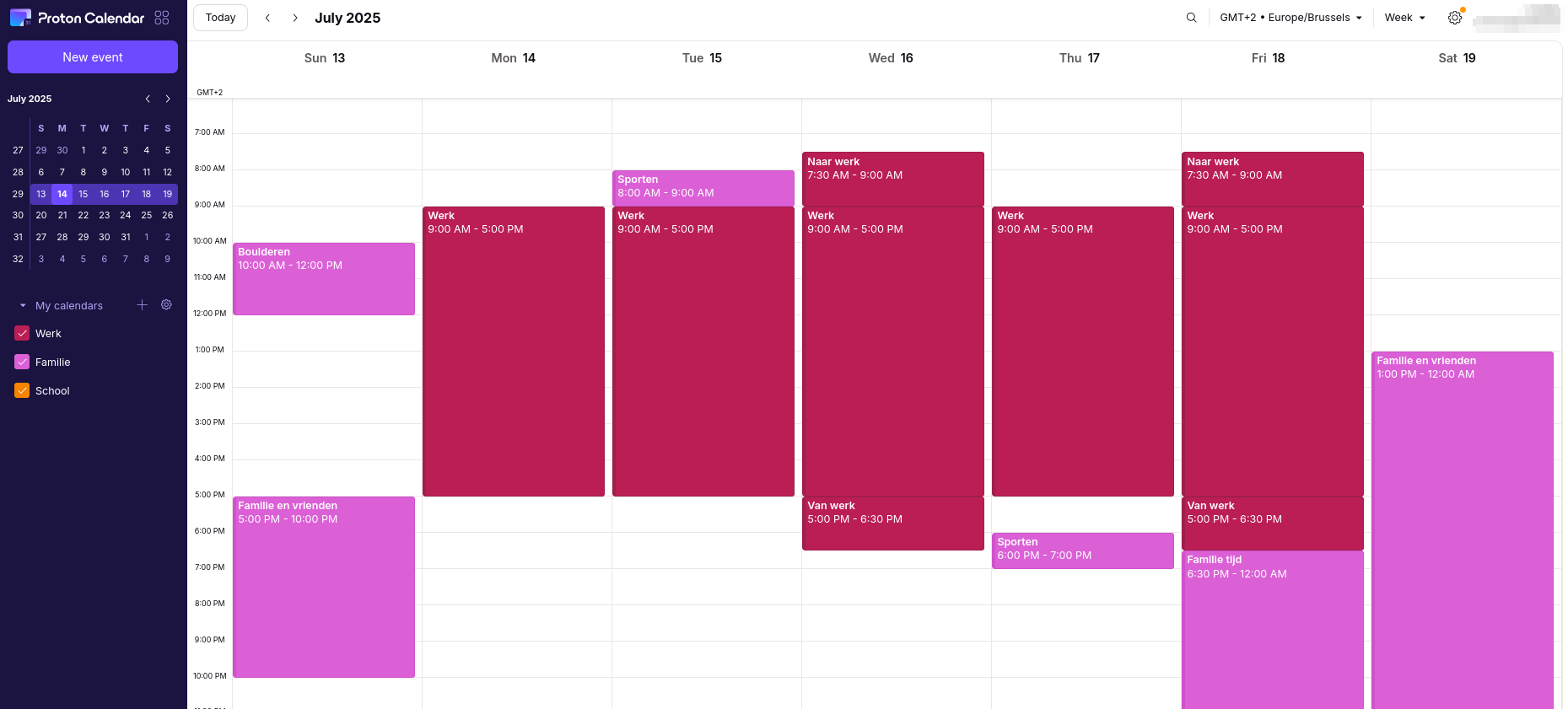
Figure 4: Step 2, time for family and friends
Now it’s a different story. Weekends were important for me. Everyone works hard during the week, so time is needed to relax together. What’s immediately noticeable is that there seems to be relatively little time left for studying, but appearances can be deceiving. I found it very convenient to study in the evenings, from around 8 PM to 12 AM. That’s 4 hours in a day that worked well for me. Let’s schedule that time.
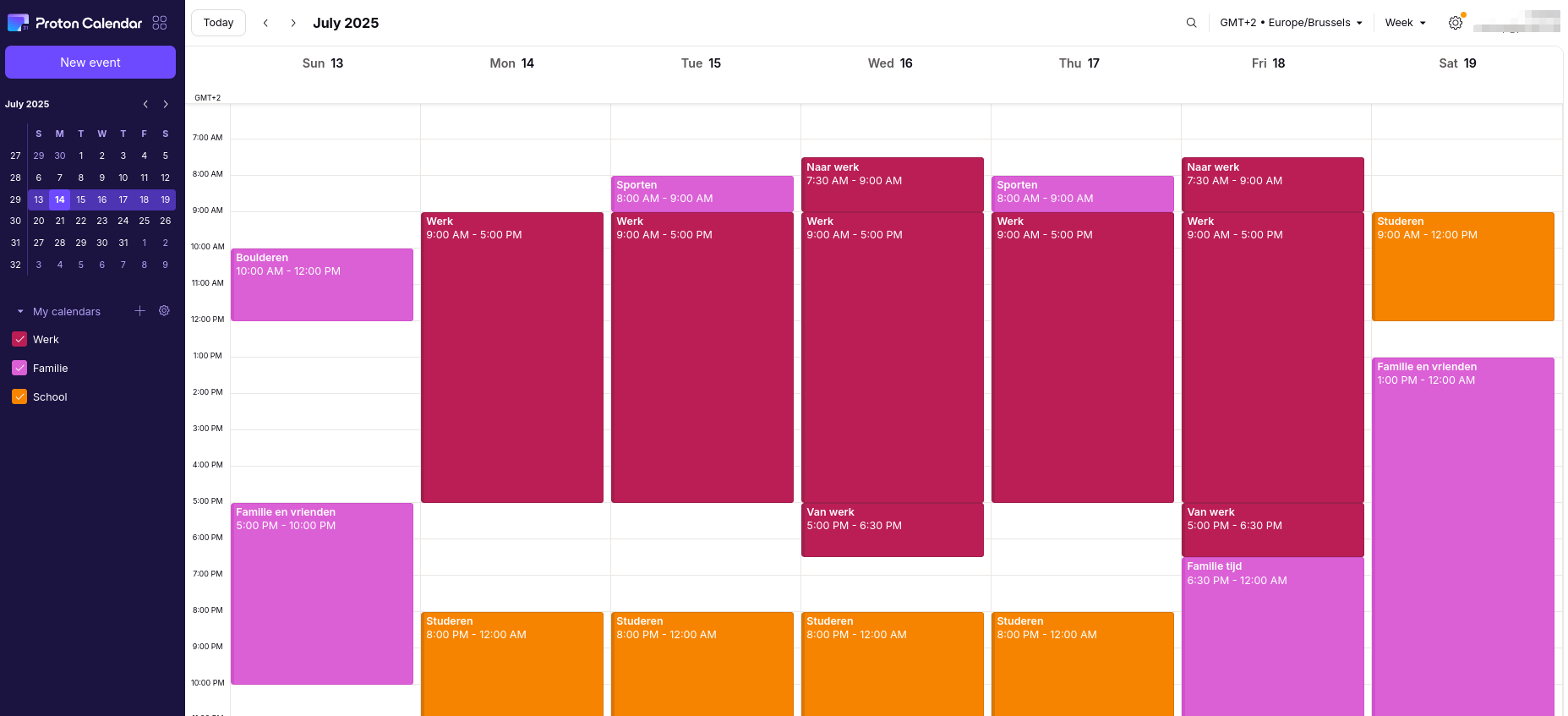
Figure 5: Step 3, time to study
That amounts to 4 blocks of 4 hours, plus 3 hours on Saturday morning — totaling 19 hours available for studying. While planning, it immediately became apparent that the workout session on Thursday didn’t fit well, so I moved it to the morning. With all this scheduled study time, there’s also room for family and friends, at times that are often convenient for everyone.
But what if you’re not a night owl? I also guide students during their graduation projects, and some are more morning people. They get up at 5 AM and study until 7 AM, often because they have small children and don’t want to leave their partner with all the care. Personally, I prefer the evening, but to each their own.
When necessary, such as when a deadline is approaching, you can always borrow time from another block, but always do this in consultation. The advantage of planning everything is that it provides clarity, but it also creates expectations. If you change something, even temporarily, explain it, so you don’t run into problems. I often adjusted my schedule by looking at the workload of a module and creating a study plan; I’ll write more about that later.
I also had bonus time in my schedule. Sunday morning was often available, depending on my son’s interest in a bouldering session. Additionally, I often had an hour in the morning, between when everyone left for work and school and when I started working. I used that time to read papers and make my initial notes. But more on that later.
Using the calendar effectively to reserve time is not revolutionary. There are other methods such as the “Trident Method” (explained by Ali Abdaal), and many other techniques for good time management. But this is the method that worked well for me.
Hopefully, you’ll start your study time now with a good system to manage your time. This is the first step towards a successful study period!